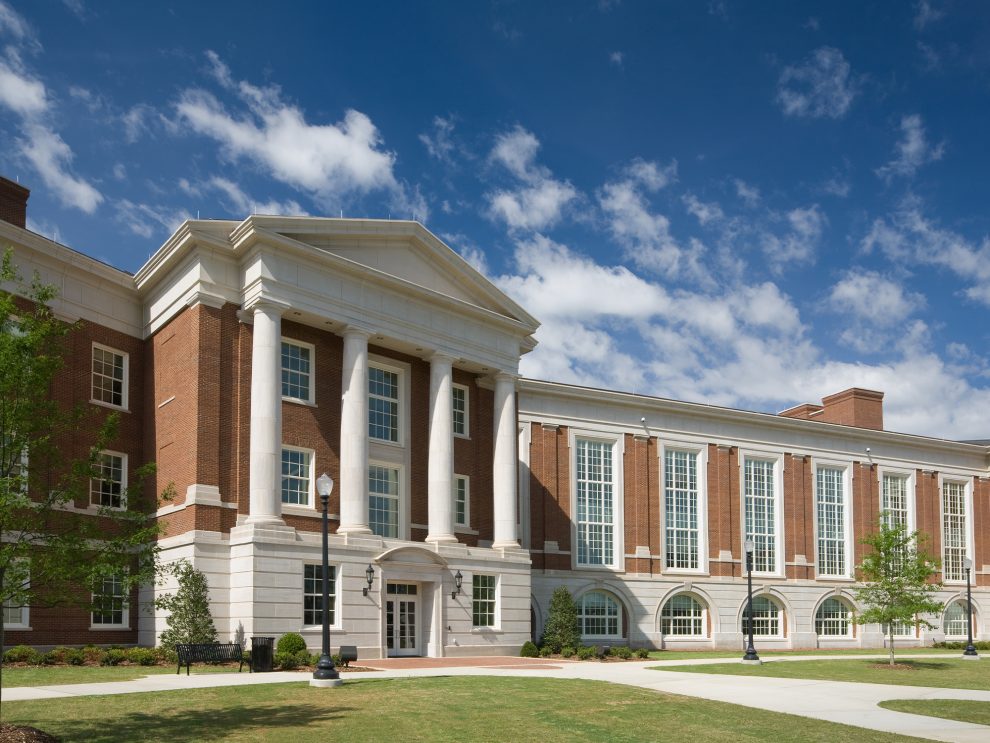If your name isn’t good enough for a college, is your money? Such a question has been raised over a now-deleted donator in Virginia.
The situation dates back to 1846, when a man named Thomas C. Williams attended Richmond College. In the 1880s, he served as a trustee.
More from the Richmond Times-Dispatch:
After his death, his family made a gift to [the college] that helped establish the law school. When Richmond College became the University of Richmond in 1920, it began referring to the law school as the T.C. Williams School of Law.
That was then, this is now. In September of 2022, the University of Richmond board voted unanimously to change the name to the University of Richmond School of Law.
At the time, President Kevin Hallock and the board issued a letter:
We recognize that some may be disappointed or disagree with this decision. We also recognize the role the Williams family has played here and respect the full and complete history of the institution.
He may have played an important part, but according to tax records, T.C.’s successful tobacco business owned 25 to 40 slaves.
Six months before T.C.’s booting, half a dozen campus buildings were re-labeled. Gone were references to those who’d possessed slaves — including Robert Ryland, the school’s first president in 1840.
On March 26th, a new policy was instated:
No building, program, professorship, or other entity at the University should be named for a person who directly engaged in the trafficking and/or enslavement of others or openly advocated for the enslavement of people.
Out with the old, in with the new. But T.C.’s family wants their man’s old money back: If he’s unworthy of recognition for his efforts, they figure, his cash should be no good as well.
T.C.’s great-great-grandson explained in a letter to the president.
“If suddenly his name is not good enough for the University, then isn’t the proper ethical and, indeed, virtuous action to return the benefactor’s money with interest? … [I]s it not a form of fraud to induce money from a benefactor, and then discredit the benefactor after he is long dead? Surely the Williams family would not have given a penny to the University knowing that the University would later dishonor the family.”
It was a might more than a penny; Rob has done the math:
“At a six-percent compounded interest over 132 years, [T.C.’s] gift to the law school alone is now valued at over $51 million, and this does not include many other substantial gifts from my family to the University.”
Bottom line:
“The ethical and virtuous decision is clear. Return the money.”
Rob told The College Fix his family has sent President Kevin “20 (unreturned) emails asking for the evidence” regarding their ancestor’s slavery connection.
Furthermore, Rob’s October 11th letter indicates the family may have assisted minorities during a pivotal time:
“[T.C.] hired thousands of workers, many were blacks and women. Productive work and industry is the only thing that lifts people out of poverty. The Williams family gave away all of their immense wealth, most of it was anonymous… Many Richmond institutions are the result of their goodwill and generosity.”
Perhaps similar things could be said of departed others ejected from prominent places. Even so, name removal has titanically taken hold:
Back to the University of Richmond and T.C. Williams, it may surprise some people that the demand of a refund hasn’t been made in many other instances. Could we be headed toward more? Maybe.
Meanwhile, Rob thinks the University and its president need to look inward:
“The University itself participated in slavery! Using your Orwellian logic, then shouldn’t the University have to change its name? … Using your T.C. Williams logic, then don’t you have to resign since you preside over a school that participated in slavery?”
Story cited here.
























